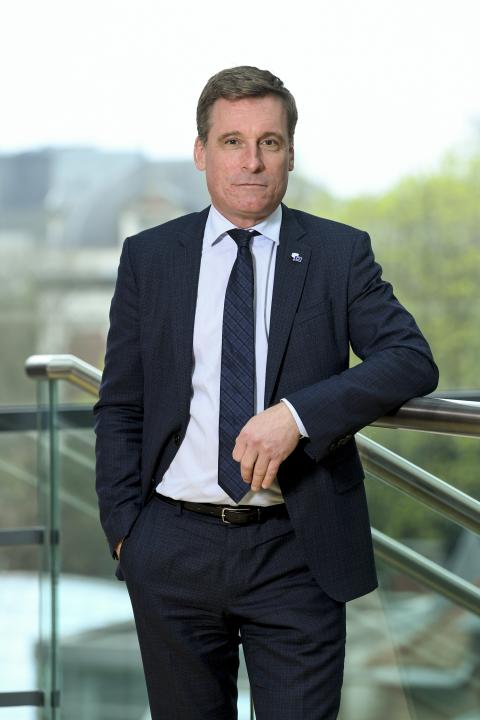European Economic
and Social Committee
Dear readers,
In this issue, I want to draw your attention to Civil Society Week, the flagship event organised and hosted by the EESC at the beginning of March.
With less than 100 days until the European elections, Civil Society Week provided a unique opportunity for the EESC to bring together people from all walks of life to discuss what matters to them and the European future they want. Over 800 representatives from civil society organisations and youth groups brainstormed throughout the week to outline their key messages and expectations for the next EU leaders. The message, which I am committed to conveying, is clear – people want to see more democracy and youth participation, less fake news and an economy that works for everyone. Europe cannot afford to ignore the voice of civil society, the true watchdog of our democracies.
The insights gained from Civil Society Week will feed into an EESC Resolution on the European Elections. You can find early insights from Civil Society Week on the EESC website.
Our preparation for the elections also involves strengthening relations with the European Parliament. On 27 February, I signed a Memorandum of Understanding with the European Parliament's President Roberta Metsola to deepen the cooperation between the two institutions promoting European elections, boosting voter turnout – especially among non-voters and first-time voters – and combating information manipulation. The EESC will fully mobilise its extensive network, spanning across the EU and representing employers, workers and civil society organisations, so they can fully play their role. The agreement is a crucial step in generating momentum leading up to the 2024 European elections.
At the EESC, we aim to empower civil society organisations not only in the European Union but also abroad. In February, we officially launched our Enlargement Candidate Members (ECM) initiative, marking a turning point in the EESC's history. The initiative to involve representatives from candidate countries in EESC work was warmly welcomed by European Commission Vice-President Věra Jourová, the Prime Minister of Montenegro, Milojko Spajić, and the Prime Minister of Albania, Edi Rama, who attended the inauguration. A total of 131 Enlargement Candidate Members were selected to comprise the pool of civil society experts who will participate in the Committee's work in the coming months. Our common goal is for all candidate countries to progressively move closer to the EU and become increasingly integrated with the EU as the negotiations advance.
A vibrant civil society and strong social dialogue are indispensable for well-functioning democracies. Welcoming candidate countries is a positive and logical step forward for democracy in Europe.
Oliver Röpke
EESC President
